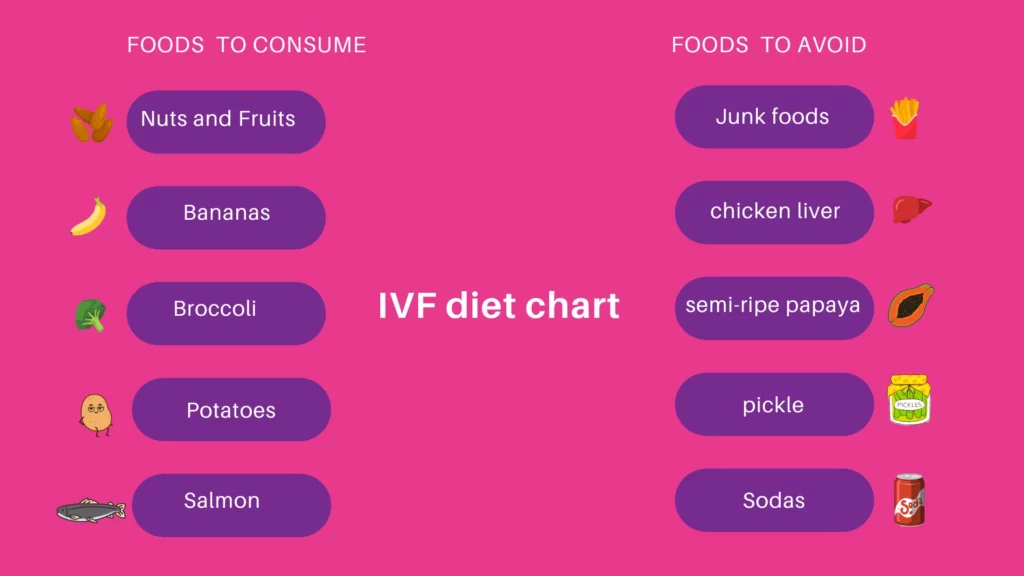Table of Contents
1. Introduction
In-vitro fertilization (IVF) is a powerful fertility treatment, but it’s not without its challenges—especially for women. While medical procedures play a central role, many women overlook the crucial impact of natural factors like diet, lifestyle, and mindset. These aspects are not just complementary—they can actively support your body’s readiness for conception. This guide offers practical, expert-backed tips to help women enhance their IVF success rates naturally and holistically.
2. Understanding IVF Success Rates
IVF success depends on numerous biological factors, including age, ovarian reserve, sperm quality, and uterine health, all of which can be influenced by lifestyle and emotional well-being.
Key Points:
- Women under 35 have a higher success rate per IVF cycle.
- Emotional stress, poor diet, and sedentary lifestyle can impact fertility outcomes.
- Preparing your body and mind before IVF can increase the chances of success.
3. Diet Tips to Boost IVF Success
What you eat plays a vital role in hormone regulation, and overall reproductive health.
a) Embrace a Fertility-Boosting Diet
- Focus on whole foods: fruits, vegetables, whole grains, lean proteins, and healthy fats.
- Prioritize foods rich in folate, iron, and omega-3 fatty acids.
- Include fertility-friendly options like walnuts, avocados, and leafy greens.
b) Antioxidants Matter
- Antioxidants like vitamin C, E, and zinc help fight oxidative stress which can damage egg cells.
- Berries, citrus fruits, nuts, and green tea are excellent choices.
c) Balance Your Blood Sugar
- Avoid refined sugars and processed foods.
- Stick to complex carbs like oats, quinoa, and brown rice.
- Stable blood sugar levels support hormone balance and ovulation.
d) Hydration is Key
- Drink at least 2-3 litres of water daily to maintain cervical mucus and support uterine health.

4. Lifestyle Changes That Make a Difference
Plan your pregnancy while you’re young and at your most fertile. Your daily habits influence reproductive health more than you might realize—small, consistent changes can make a significant difference.
a) Maintain a Healthy Weight
- Both underweight and overweight conditions can disrupt hormonal balance.
- Aim for a BMI between 19–23 for optimal fertility.
b) Stay Active—but Not Excessively
- Moderate activities like walking, yoga, or swimming improve circulation and reduce stress.
c) Limit Toxins and Chemicals
- Avoid exposure to pesticides, BPA (in plastics), and synthetic fragrances.
- Choose natural, non-toxic skincare and cleaning products.
d) Quit Smoking and Alcohol
- Both are linked to poor egg quality and reduced implantation rates.
- Eliminating these can significantly enhance IVF outcomes.
e) Get Enough Sleep
- Aim for 7-8 hours of restful sleep.
- Sleep supports hormonal regulation and cellular repair.
5. The Power of Mindset and Emotional Well-being
Your emotional state influences hormonal balance, stress levels, and even your body’s receptivity to treatment.
a) Practice Stress Management Techniques
- Include mindfulness, meditation, or deep breathing exercises in your daily routine.
- Stay positive and focus on the treatment and not outcomes.

6. Conclusion
IVF can be physically and emotionally taxing, but natural strategies can offer crucial support. From nourishing your body with the right foods to managing stress and maintaining a fertility-friendly lifestyle, every positive change matters. Remember, this journey is as much about mental strength and emotional resilience as it is about medical treatment. At Kamna Fertility, we believe in empowering women through holistic care—because your strength is the foundation of new life.
7. FAQs
Q1. Can diet really improve my IVF success chances?
Yes, a nutrient-rich, balanced diet improves hormone function, egg quality, and overall fertility.
Q2. Is it safe to exercise during IVF treatment?
Moderate, low-impact exercises like walking or yoga are safe and beneficial unless your doctor advises otherwise.
Q3. How does stress affect IVF outcomes?
High stress can disrupt hormonal balance and reduce implantation chances. Managing stress improves your emotional and physical readiness.
Q4. Should I avoid caffeine during IVF?
Limiting caffeine to under 200 mg per day (about one cup of coffee) is generally recommended.
Q5. When should I start lifestyle changes before IVF?
Ideally, begin 3–6 months prior to your IVF cycle to optimize your body’s condition.
Q6. Can positive thinking really help?
Yes, a positive mindset reduces cortisol levels and can create a more receptive environment for implantation and pregnancy.



